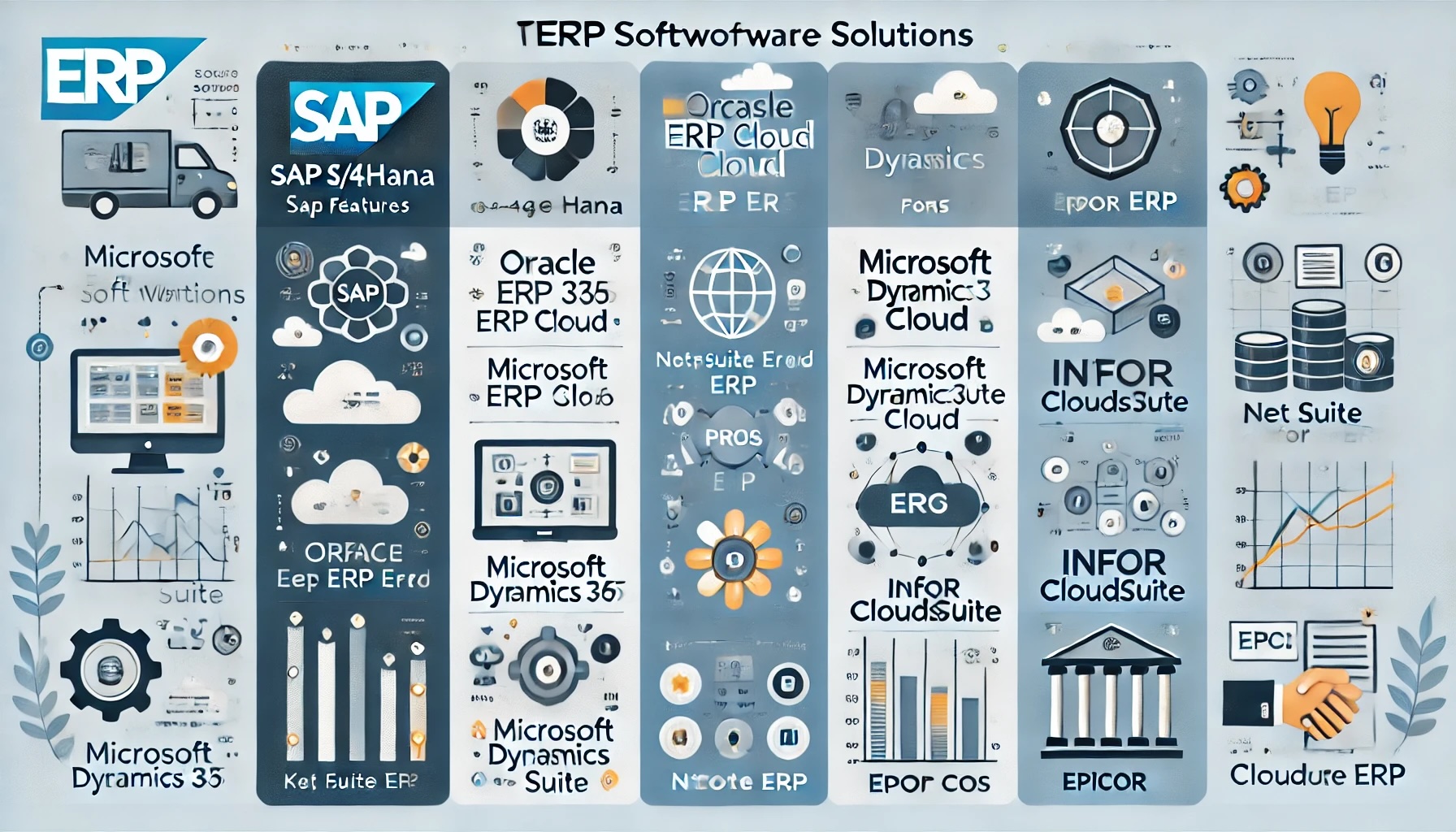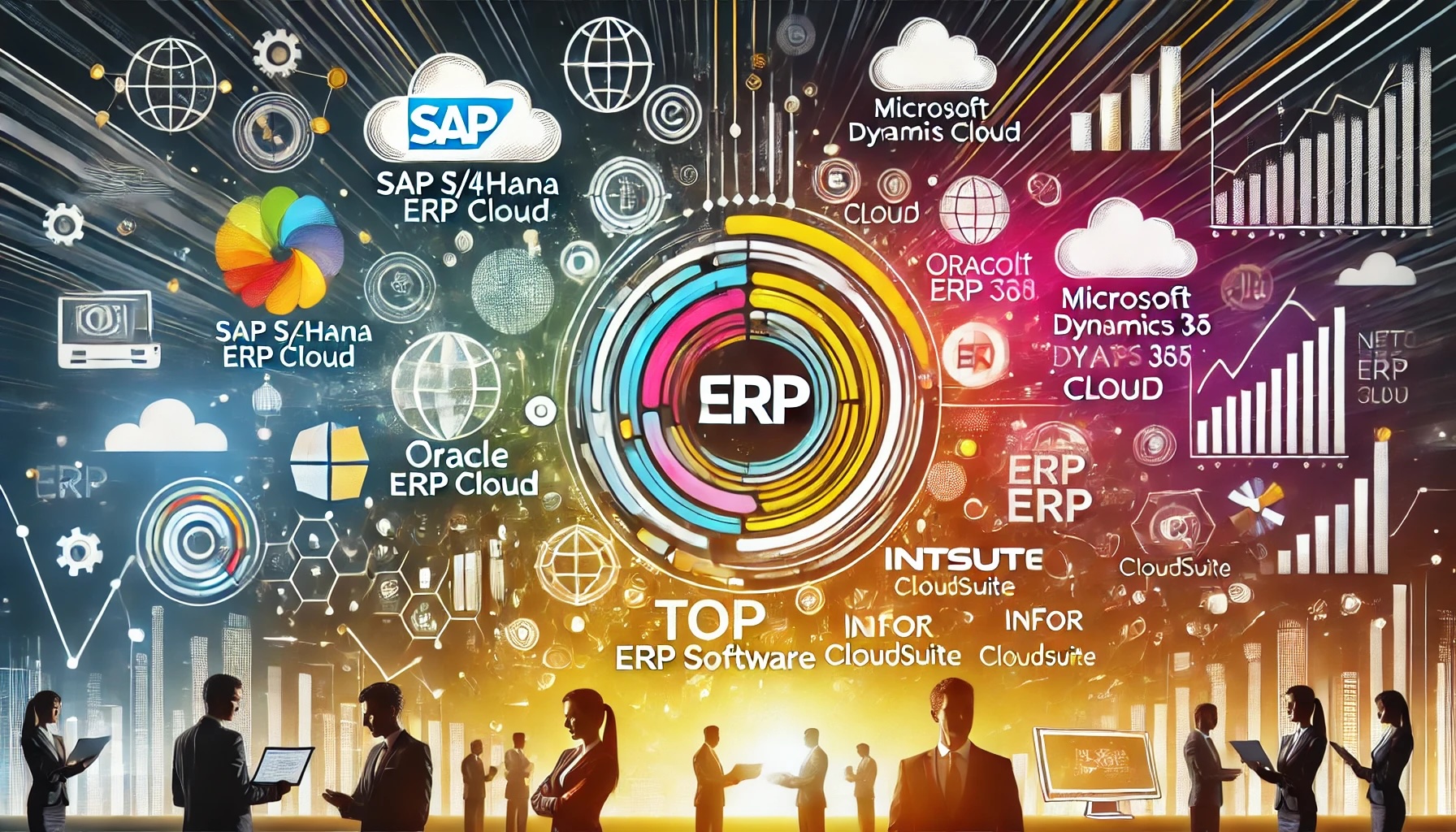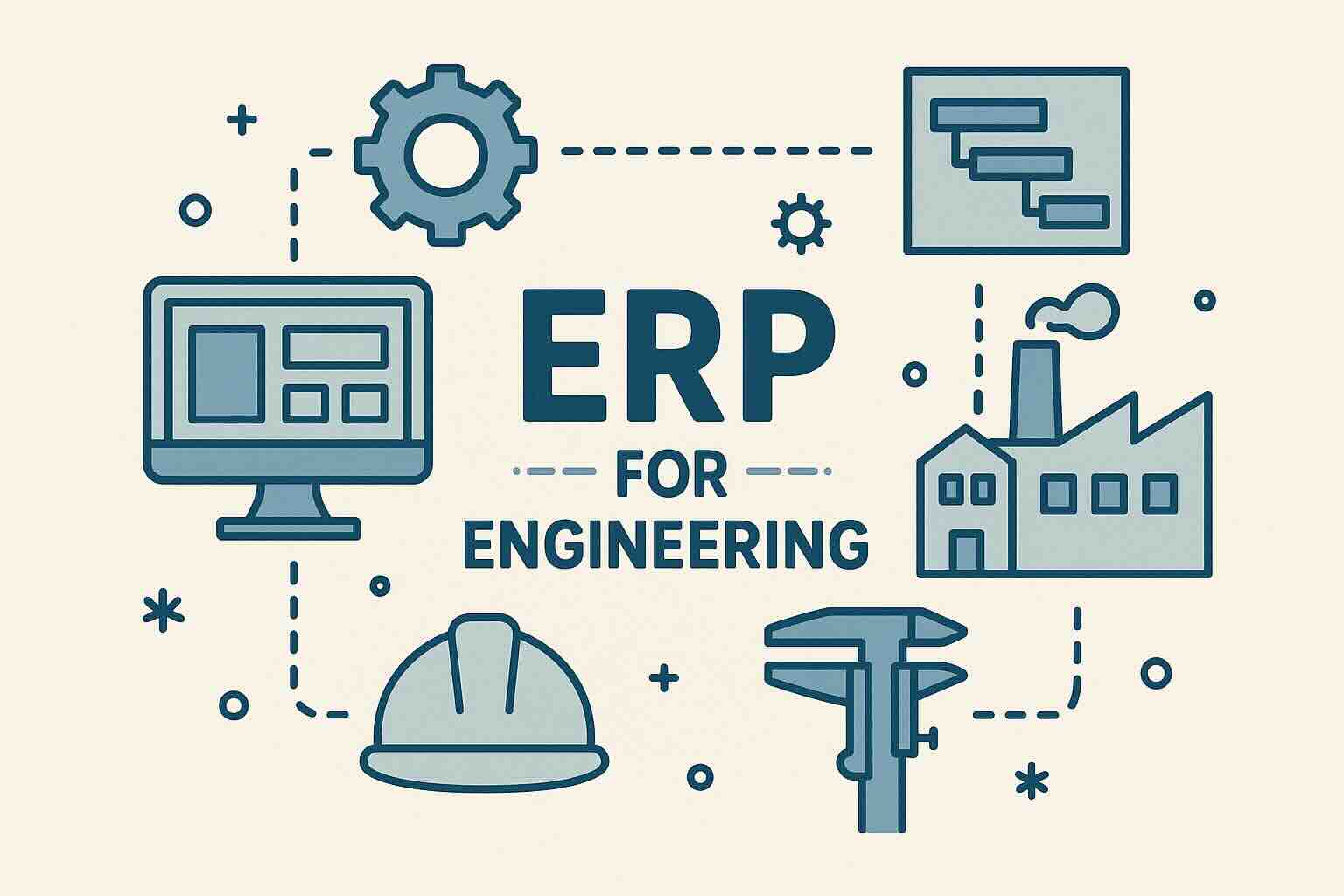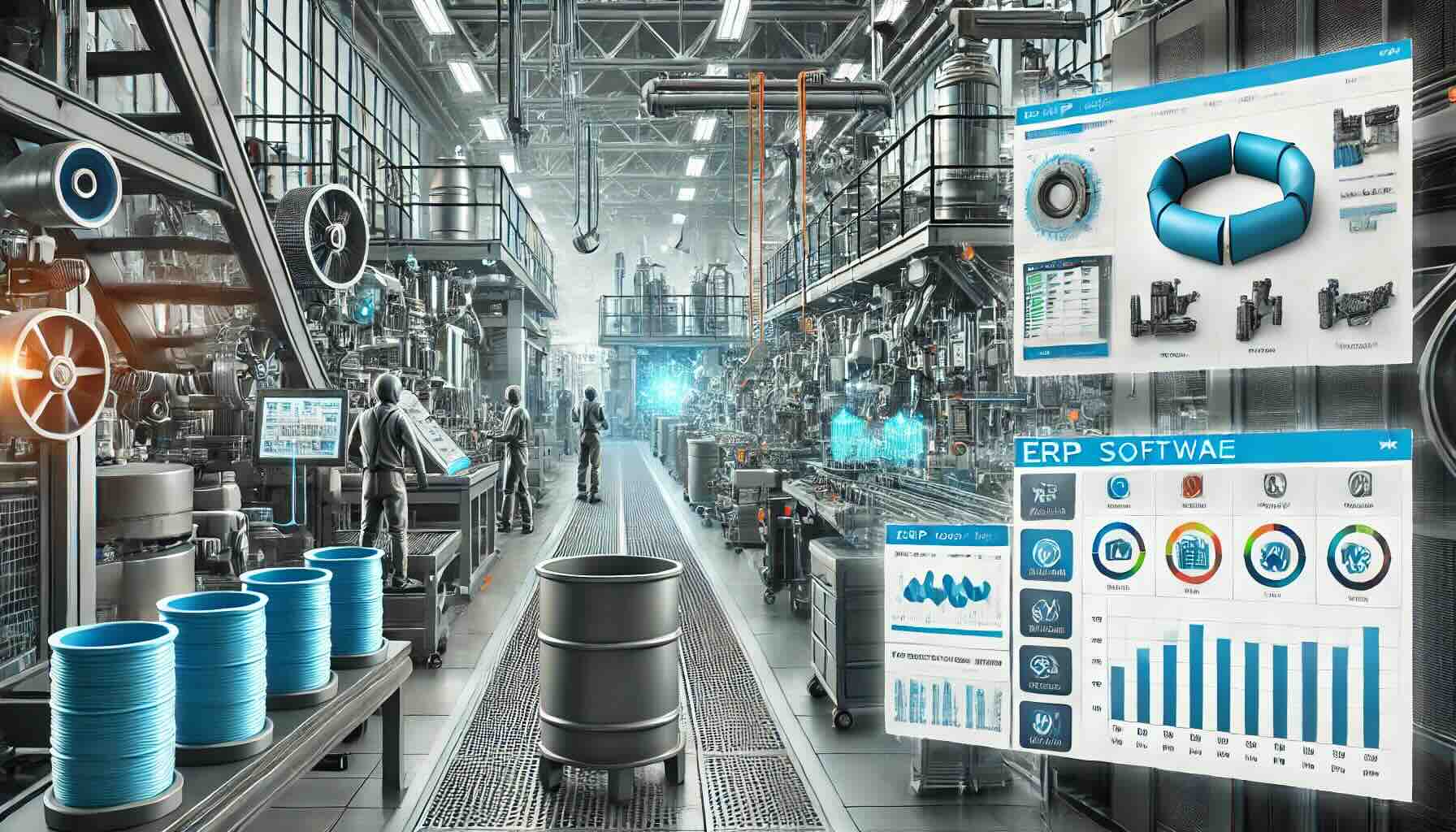SAP vs. Oracle: Choosing the Right ERP for Your Business
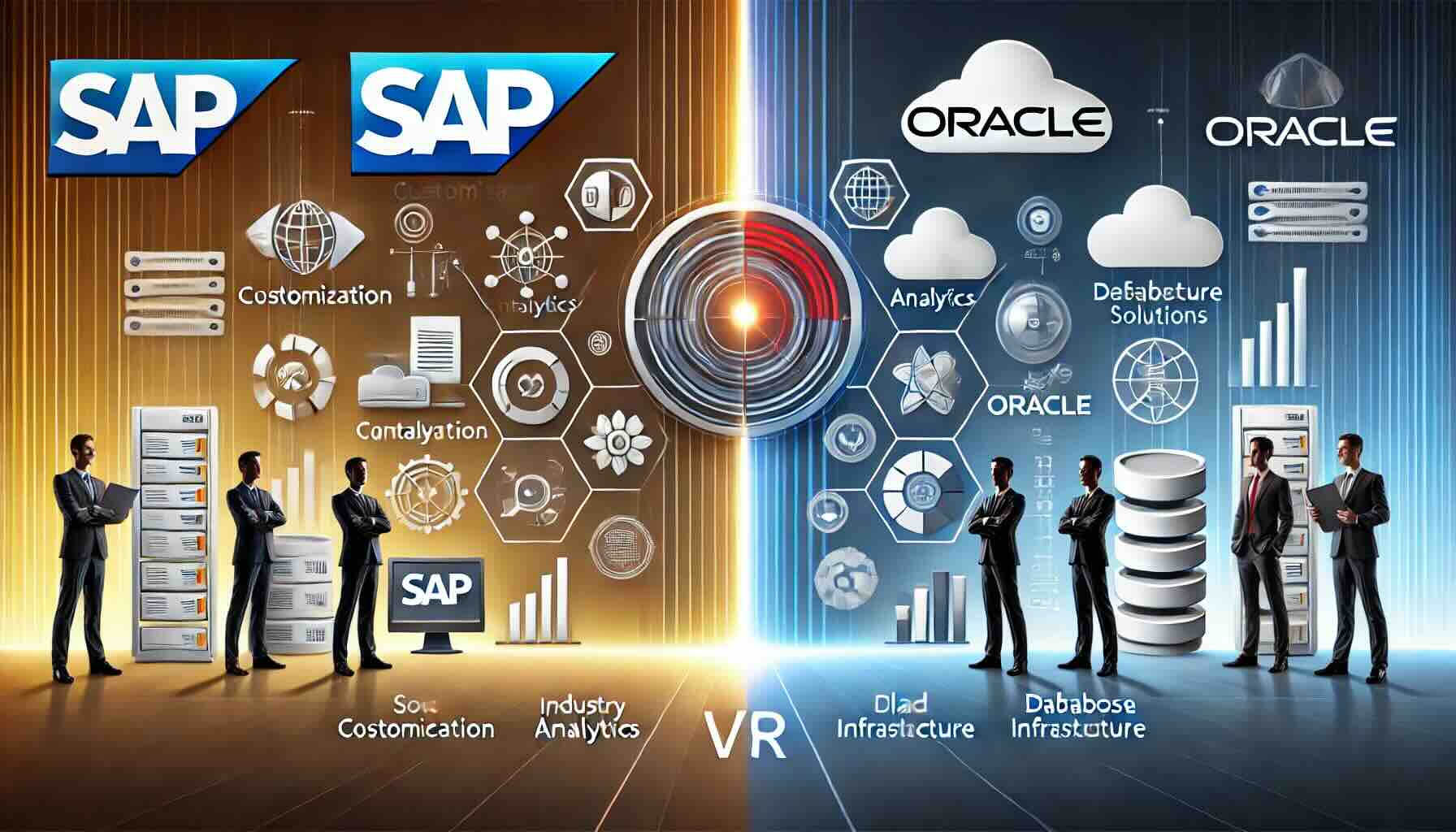
When it comes to enterprise resource planning (ERP) and database solutions, two giants stand out: SAP and Oracle. Both companies have long been leaders in providing software solutions to streamline business processes and improve efficiency. However, despite their shared goal of empowering organizations, SAP and Oracle differ in many ways, from their core offerings to their implementation processes and scalability. This guide will explore the key differences between SAP and Oracle, helping businesses decide which solution aligns with their needs.
1. Overview of SAP and Oracle
SAP:
SAP (Systems, Applications, and Products) is a German-based company known for its comprehensive ERP software solutions. SAP’s flagship product, SAP ERP, integrates core business functions, including finance, supply chain, human resources, and customer relationship management (CRM). SAP is renowned for its robust industry-specific solutions and deep integration capabilities.
Oracle:
Oracle Corporation, based in the U.S., is best known for its relational database software. Over time, Oracle has expanded into ERP systems through Oracle Cloud ERP, offering modules for financial management, supply chain planning, procurement, and more. Oracle’s solutions emphasize data-driven decision-making, leveraging its powerful database technologies.
2. Core Focus
SAP primarily focuses on ERP and enterprise applications. Its software suite integrates end-to-end business processes and provides tools for managing every aspect of an organization, from HR to analytics. SAP S/4HANA, the latest iteration of its ERP system, runs on the in-memory HANA database, enabling real-time analytics and processing.
Oracle’s foundation is in database management, and it has built its ERP offerings around this strength. While it has developed a strong ERP platform, Oracle’s primary focus remains on database technologies, cloud infrastructure, and business analytics. Oracle Cloud Infrastructure (OCI) is a cornerstone of its offerings, allowing businesses to build, run, and scale applications seamlessly.
3. Key Differentiators
While both companies provide ERP and cloud solutions, their distinct approaches set them apart:
- Database Management:
SAP relies on its in-memory HANA database, optimized for real-time analytics, while Oracle dominates with its relational database solutions, offering automation and superior performance for transactional and analytical workloads. - Implementation:
SAP’s solutions often require longer implementation times due to their complexity and customization options. Oracle, on the other hand, emphasizes faster deployment with standardized configurations. - Customization vs. Standardization:
SAP is highly customizable, making it ideal for businesses with specific needs, though this can increase costs and complexity. Oracle offers more standardized solutions, which are easier and faster to deploy but may limit customization.
4. Cloud Capabilities
Both SAP and Oracle have pivoted towards cloud-based solutions, but their strategies differ significantly:
- SAP Cloud Strategy:
SAP emphasizes hybrid deployments, allowing businesses to operate both on-premise and in the cloud. SAP S/4HANA Cloud is particularly suitable for companies gradually transitioning to the cloud while maintaining legacy systems. - Oracle Cloud Strategy:
Oracle Cloud ERP is a fully cloud-native solution, built from the ground up for businesses seeking a comprehensive digital transformation. Oracle’s infrastructure-as-a-service (IaaS) offering allows seamless management of applications and resources in the cloud.
5. User Experience and Usability
SAP has made significant strides in improving its user interface with SAP Fiori, a modern design system that enhances usability. However, SAP’s solutions still have a steeper learning curve due to their extensive features and depth.
Oracle, in contrast, prioritizes user-friendliness with an intuitive interface and straightforward workflows. Its analytics tools are particularly accessible, catering to both technical and non-technical users.
6. Implementation and Scalability
SAP:
Implementing SAP systems, especially S/4HANA, can be complex and time-consuming. The platform’s high level of customization is a double-edged sword—offering tailored solutions but often requiring extensive resources and expertise. However, SAP is highly scalable and accommodates organizations of all sizes and industries.
Oracle:
Oracle ERP Cloud boasts faster implementation timelines due to its standardized approach. This makes Oracle ideal for businesses seeking rapid deployment, although it may lack the deep customization options of SAP. Oracle’s scalability, combined with its robust database and cloud infrastructure, makes it a strong contender for data-driven organizations.
7. Pricing and Total Cost of Ownership
SAP typically follows a modular pricing model, where businesses pay for specific modules based on their needs. While this approach allows for customization, it can lead to higher total costs due to customization, training, and maintenance expenses.
Oracle employs a subscription-based pricing model, often bundling services to provide better value for comprehensive solutions. While competitive, costs can escalate with additional features, particularly for storage and advanced analytics.
8. Support and Ecosystem
SAP boasts a vast ecosystem of partners, consultants, and third-party providers. It offers extensive support resources, but accessing specialized expertise can be expensive.
Oracle provides robust support, leveraging its database expertise to optimize integration and performance. With features like the Autonomous Database, Oracle reduces administrative overhead, offering businesses greater reliability and ease of maintenance.
9. Which Should You Choose?
The decision between SAP and Oracle depends on your organization’s specific needs:
- Choose SAP if:
- Your business requires highly customized, industry-specific solutions.
- You need robust integration across diverse business processes.
- Real-time data processing and analytics are a priority.
- Choose Oracle if:
- Your organization prioritizes database performance and cloud-native solutions.
- You prefer faster implementation and a user-friendly interface.
- Data-driven decision-making is central to your strategy.
Conclusion
SAP and Oracle offer powerful ERP and database solutions, each excelling in different areas. SAP’s strength lies in its deep customization and industry-specific capabilities, making it a go-to choice for businesses with complex needs. Oracle, on the other hand, leverages its database expertise to deliver cloud-native, data-focused solutions with rapid deployment and ease of use.
By understanding the unique strengths of each platform, businesses can align their choice with their goals, ensuring a solution that drives efficiency, growth, and innovation. Whether you opt for SAP or Oracle, investing in the right ERP system is a critical step toward long-term success.
To compare these ERP solutions and many more, you can use our new AI-powered Compare ERP tool. It’s free to use and you get a guaranteed discount on your first year’s licence fees with a referral from Compare ERP.

